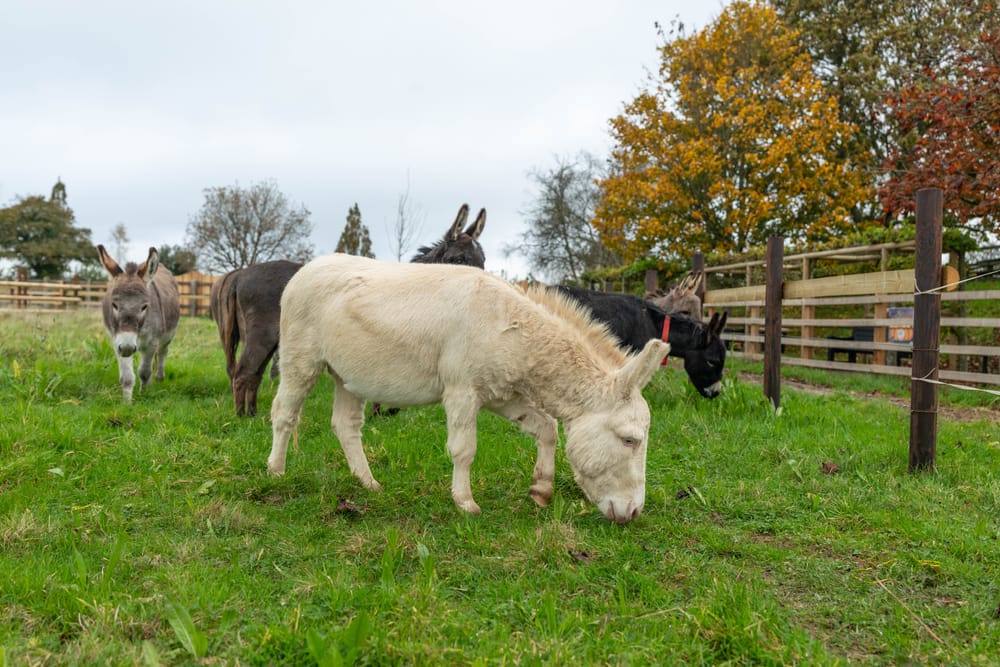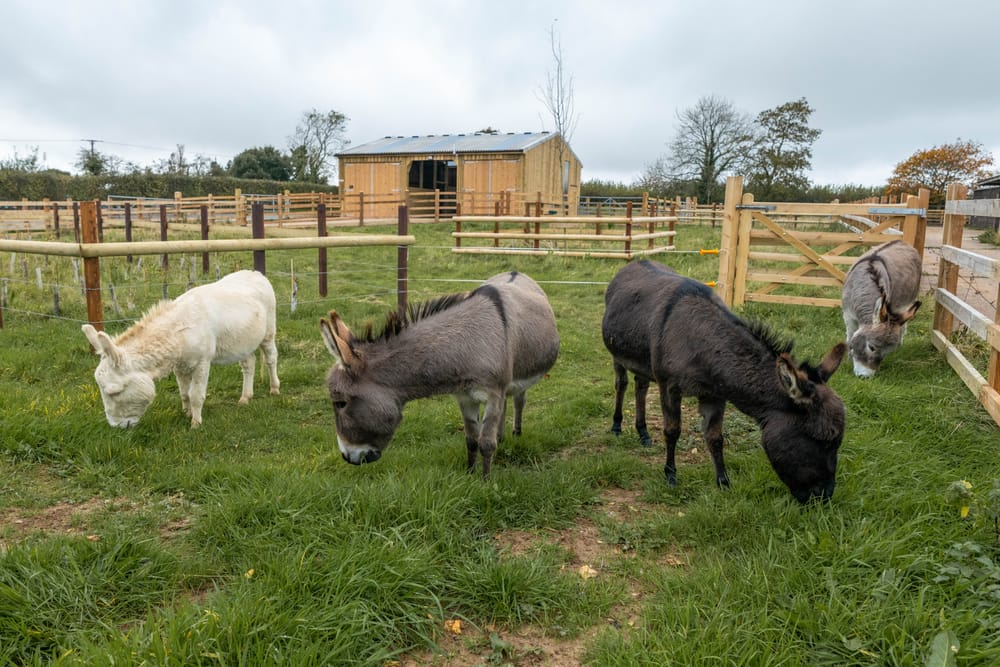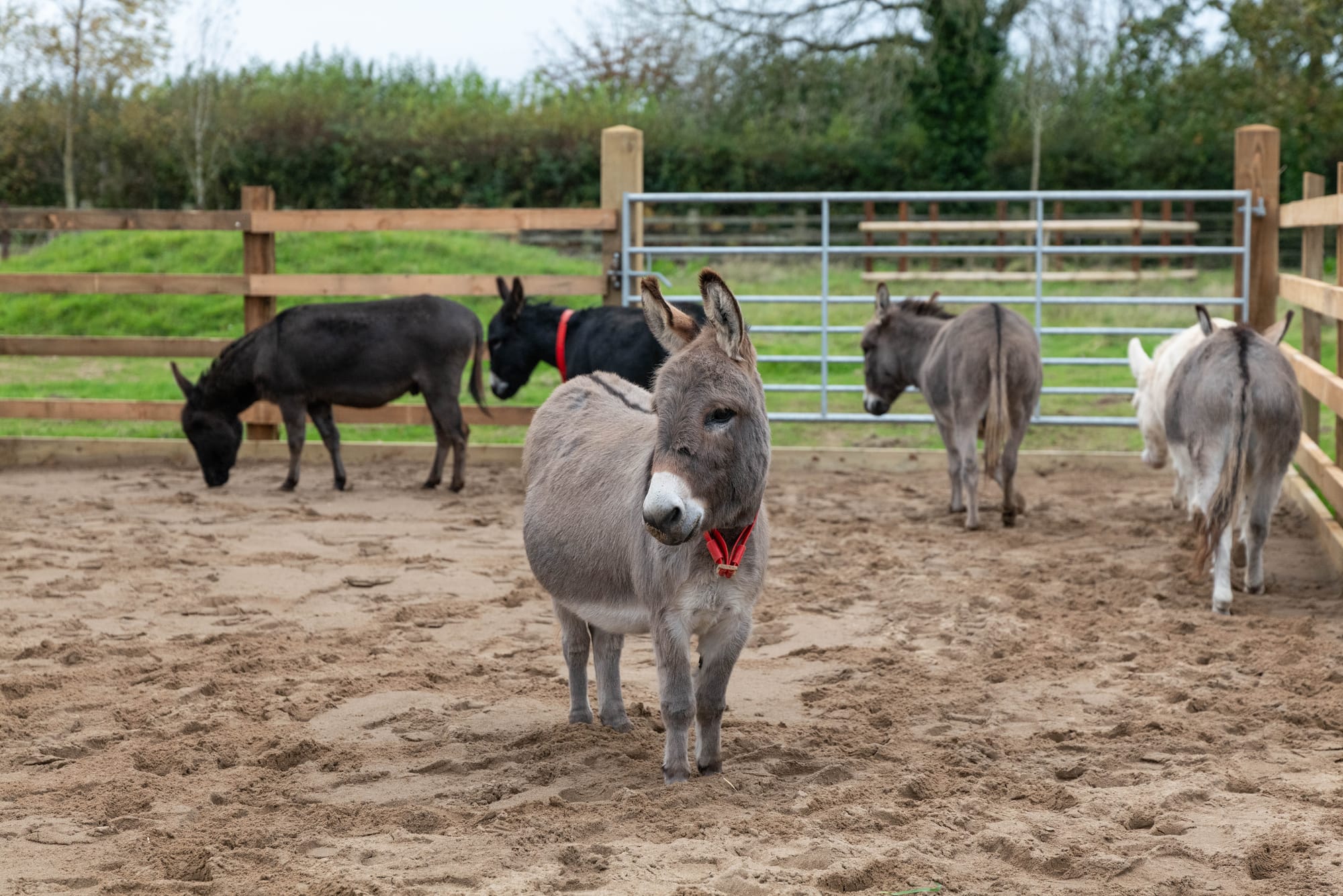A pair of miniature donkey foals, born to mares following The Donkey Sanctuary’s largest-ever rescue mission, are now thriving in a nature-inspired enrichment paddock at the Sidmouth sanctuary in Devon, South England.
Peanut and Maverick, inseparable companions, were born at the charity’s donkey hospital near Honiton in April 2021. Their mothers, Sharon and Mango, were rescued along with over 70 donkeys from a Welsh farm just a few months prior, thanks to a coordinated effort with multiple agencies. By December, the donkeys were officially placed under The Donkey Sanctuary’s care.

Now, Peanut and Maverick are part of a small Mediterranean Miniature donkey herd enjoying the newly renovated paddock, designed to offer ample room for foraging, roaming, and play. The minis have quickly become staff, volunteer, and visitor favorites.

The paddock includes diverse play and sensory items and custom-built whirligig browse holders that encourage the donkeys to engage with their toys and treats. The Donkey Sanctuary’s Ecology and Conservation team also contributed to creating a biodiverse environment that benefits both the donkeys and surrounding wildlife.

To enhance the paddock, a mix of plants was sown to increase soil diversity and help with drainage during heavy rains. Future plans include adding semi-mature trees, donkey-friendly shrubs, herbs, and diverse grass and flower species to boost biodiversity and attract more small animals, like voles and shrews.
Open to visitors, the sanctuary allows guests to enjoy views of the paddock and bring along leashed dogs, making it a family-friendly experience. Peanut and Maverick are also available for adoption through the Adopt a Donkey program, offering a meaningful way to support the charity’s work in providing top-notch care for resident donkeys and assisting those in need worldwide.
The new shelter and paddock have been thoughtfully designed to accommodate donkeys of all breeds, ensuring they remain versatile for future use. This project not only enhances the minis’ quality of life but also serves as a model for the sanctuary’s future animal welfare and enrichment efforts across other sites.
